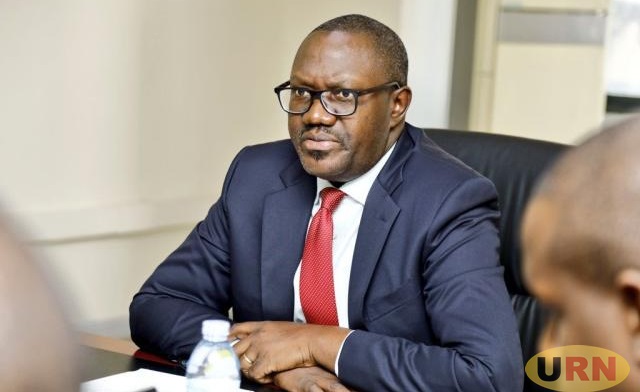
Move weaponises aid which America uses to pressure poor countries
NEWS ANALYSIS | IAN KATUSIIME | In a controversy-sparking move, Uganda has agreed to a deal with the U.S. to accept migrants deported from America.
As Uganda becomes the latest African nation to join Washington’s controversial third-country deportation strategy, the Ugandan government has received backlash for turning the country into a dumping ground for America’s castoffs.
Critics of the deal are calling the arrangement an “unholy alliance” that effectively weaponizes aid, with America using diplomatic pressure to coerce poor nations into accepting migrants they may not have the resources to support.
The speed at which the deal was hashed out shows how desperate Uganda could have been in an attempt to improve its standing with a powerful country. The hasty process appears to have even left very senior officials of Uganda’s Ministry of Foreign Affairs out of the loop.
Just a day before the deal was announced, State Minister for Foreign Affairs Okello Oryem had told the UK newspaper The Guardian that Uganda could not accept such a deal, only for the country to announce it through his subordinate, the Permanent Secretary of the Ministry of Foreign Affairs, Vincent Bagiire.
“As part of the bilateral cooperation between Uganda and the United States, an agreement for cooperation in the examination of protection requests was concluded. The Agreement is in respect of Third Country Nationals who may not be granted asylum in the United States but are reluctant to or may have concerns about returning to their countries of origin,” the Permanent Secretary said in a statement.
Bagiire said the deal is a temporary arrangement where individuals with criminal records and unaccompanied minors will not be accepted.“Uganda also prefers that individuals from African countries shall be the ones transferred to Uganda. The two parties are working out the detailed modalities on how the agreement shall be implemented,” he added.
Uganda is a country that hosts over 1.6 million refugees from South Sudan. Uganda is already grappling with refugee numbers as they put a strain on its meager resources: land, food, school, hospitals.
The government appears to have rushed to accept the deal as a way of returning to Washington’s good books.

Uganda is a known US ally, but there have been cracks in the diplomatic relationships over the years of U.S. President Donald Trump’s first and second administrations, which have either ignored poor countries or ridden roughshod over them, as in the present instance.
Also, an array of Ugandan leaders are facing financial and travel sanctions imposed by previous U.S. administrations for alleged crimes ranging from human rights violations, corruption, and political repression. The Speaker of Parliament, UPDF Generals, and civilian leaders are barred from US travel on account of an anti-gay law, political violence meted out on the opposition and activists, and corruption.
For the U.S., the latest deal is a political gambit that highlights the growing desperation to control its border and deter future migration.
Coming just as the Trump administration is ramping up its second-term immigration enforcement, the deal sends a clear message: the U.S. is willing to pay and negotiate with African nations to offload asylum seekers.
This strategy allows the U.S. to bypass legal and diplomatic hurdles that prevent direct deportations and to shift the political and financial burden of asylum processing to a country with its own complex governance and human rights record.
For the thousands of individuals now facing deportation to a third country, the deal represents a sudden and life-altering shock. These migrants—who may have fled violence or instability—are now being sent to a nation they have no connection to, with a new set of cultural, social, and logistical challenges.
Uganda now follows the example of Rwanda and South Sudan in accepting migrants. eSwatini also accepted five migrants from the U.S. in July. African countries have now become a cornerstone of U.S. deportation strategy.
While Uganda has a reputation for hosting refugees, there is no guarantee these new arrivals will be granted the same legal protections or access to services as other refugees. The deal raises serious humanitarian questions about the fate of these individuals and whether their human rights will be protected in a system designed to serve the political interests of another nation.
The new U.S.-Uganda migrant deal underscores Washington’s attempt to expand its migration partnerships beyond Latin America and the Caribbean, anchoring them in Africa, where migration flows are increasingly global in scope.
For Uganda, the agreement presents uncertainties—positioning the country as a critical partner in international burden-sharing while also raising questions about resources, security, and the social impact of hosting migrants resettled from halfway across the world in the midst of a refugee crisis.
Ultimately, the deal highlights a broader recalibration of U.S. foreign policy in Africa, where migration, security, and diplomacy intersect. Whether this arrangement is remembered as a moment of strategic cooperation or a source of new domestic pressures will depend on how Kampala manages the influx and how Washington sustains support beyond the initial fanfare.
Migration experts say Uganda’s role in global migration politics has just taken on a new and more prominent dimension.
 The Independent Uganda: You get the Truth we Pay the Price
The Independent Uganda: You get the Truth we Pay the Price





